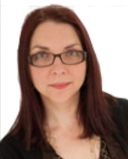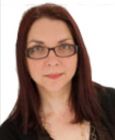Career
Psychologist vs Psychiatrist & More—What's the Difference?
The Data Doctor on the alphabet soup of Ph.D., M.D., PsyD, Ed.D., DSW, DPH, etc.
Posted August 18, 2015
Dear Data Doctor,
What's the difference between the PsyD, Clinical, and Counseling tracks? What are the benefits/drawbacks of each?
--Elise
Dear Elise,
Thanks again for writing down some of the questions from our student session on applying to graduate school. The range of graduate degrees for different kinds of "counselors" or "therapists" can be very confusing. Many students want to get a Ph.D. in clinical psychology, but that is just one of many good choices for people who want training in how to be a therapist. Also, there are many types of graduate degrees in psychology that provide no training in therapy at all. Here's a guide to some of the main categories, but know too that there are more alternatives emerging all the time—for example degrees in Human Development or Family Studies that also provide similar types of training.
In the brief descriptions below, I emphasize the differences in the programs to help distinguish them, but it is important to realize that there is a lot of overlap in the training in all of these programs. They will all provide the basics in assessment and therapy and a solid foundation in existing psychological knowledge.
Ph.D. in Clinical Psychology
Historically, this is what people usually mean when they say "psychologist" (this is the degree I have, from the University of North Carolina at Chapel Hill). This is the degree that most psychology majors are most interested in, in my experience. However, it is important to note that these are also the most competitive programs to apply for. Some schools, especially those in desirable areas to live, get hundreds of applications for usually around 5 to 10 openings in an incoming graduate class.
These programs are also more research-oriented than many undergraduates realize. A good portion of your training will be in the science of psychology as well as in clinical work. Another feature that is distinctive compared to many of the options below is that you will get solid training in working with people with severe psychological problems, such as schizophrenia and other psychotic disorders. This is also the most common training for neuropsychologists who study the behavioral aspects of dementias and other brain disorders. In addition to classwork, you will complete a scientific dissertation (original research project) and a one-year, full-time pre-doctoral internship. In order to get licensed, you will also need a supervised post-doctoral experience. Those requirements vary a little more from state to state, but most are also equivalent to another full-time year of supervised clinical work.
Important to know: Later in your career, when you are applying for internships, licensure, jobs, etc., it is a huge advantage to a degree from an accredited program. Be wary of anything else.
Insider tip: If you are serious about getting a degree in clinical psychology, "consider the middle"—many programs in the Midwest or more rural Southern areas offer excellent training and get fewer applications than programs in coastal cities or well-known college towns.
Psychiatrist—M.D. with specialization in psychiatry.
Many people in the general public confuse "psychologist" and "psychiatrist" (it even took my mother some time to appreciate the difference), they offer very different training and work experiences. You will go through full medical school training first and then specialize in psychiatry, perhaps first through electives and then in residency. In most U.S. jurisdictions, psychiatrists are the only type of psychotherapist with prescription privileges.
Important to know: It used to be the case that many psychiatrists had private practices that were similar to psychologists and comprised mostly of longer sessions devoted to psychotherapy. However, these days many psychiatrists primarily focus on psychopharmacology. For a variety of reasons, including the way insurance reimbursements are set up, many psychiatrists primarily see patients for medication assessment and management, which are often 15-minute sessions.
Insider tip: This may be starting to change, but in recent years a lot of undergraduates have picked a major in the humanities instead of the more traditional biology and chemistry (they still have to take the bio and chem prerequisites, just not as a major). This has been seen as a way to stand out in the huge stacks of applications.
Counseling or school psychologists—Ed.D.
Many undergraduates are less familiar with the Ed.D., but this is surprising because it is a very large profession that is very similar to clinical psychology. This is therapy training in departments of education instead of departments of psychology. There is a lot of overlap with a clinical Ph.D., but there are different areas of emphasis. Most Ed.D. programs will offer a lot of training in the assessment of intelligence, learning disabilities, and other issues that are important to schools. They also offer more training in career aptitude tests. They tend to focus on student populations, up through and including college students, and less on older adults. Although certainly a basic background in schizophrenia and other severe disorders will be included, most counseling or school psychologists do not focus on the treatment of the severely mentally ill.
Important to know: In most (if not all) states, there is no difference in the license of a clinical Ph.D. and an Ed.D.
Insider tip: Many Ed.D. programs are much easier to get into than clinical Ph.D. programs and may be more receptive to people switching fields. For example, last year I had a student who switched from anthropology and linguistics to a doctoral program in counseling psychology.
Doctor of Psychology—Psy.D.
This is a professional degree that is primarily aimed at training people who will become full-time providers—not researchers or teachers. Because many clinical psychology Ph.D. programs are most interested in students who plan research or teaching careers, this relatively new degree helped fill a void in practitioner training. The main downside to these programs is that they offer much less scholarship money, on average, than most Ph.D. or Ed.D. programs and can be very expensive.
Important to know: Many Psy.D. programs are at stand-alone institutes and focus on older students who have some professional experience in the field. The dissertation may sometimes be a literature review instead of a scientific study. The internship and post-doctoral requirements are the same as for Ph.D. and Ed.D. because these are driven partly by state licensing regulations.
Insider tip: The university-based Psy.D. programs are considered to be more prestigious in my experience. Further some of those offer tuition discounts and other funding that is more similar to a Ph.D. or Ed.D. program.
Social work degrees—MSW and DSW
If you want to get a Master's degree and not a doctoral degree, then I often recommend the MSW instead of a Master's in psychology. The MSW used to be a terminal degree (that is, the highest one offered in a discipline) and there are still more career opportunities for an MSW in most places than an M.A. or M.S. in psychology. In the last few decades, some schools have started adding the doctorate in social work—the DSW. Like a clinical Ph.D., these are more oriented for people who want to go into research, training, or administration.
You will learn more about topics such as case management, discharge planning and child protection in social work than in other disciplines. Social work programs usually have a strong family and systemic focus.
Important to know: In all 50 states you can get licensed as an independent practitioner with an MSW (and appropriate supervised practice).
Insider tip: The joint MSW-MPH degree is hot right now.
Public health degrees-MPH and DPH
Pretty much ditto for much of what I just said about MSW and DSW. The doctorate—DPH—is a relatively new degree. People with backgrounds in public health learn about health education, prevention, and working at the community level (the community focus is part of what makes it a good blend with an MSW).
Important to know: Most people in public health do not provide direct health care services.
Insider tip: Same as above, the joint MSW-MPH degree is hot right now. There are probably more opportunities for international travel with an MPH.
A few final notes.
Surprisingly, undergraduates do not always realize that most of the faculty in their Department of Psychology are probably not therapists. Many Ph.D.s in psychology are awarded in non-practitioner fields, such as neuroscience, social psychology, developmental or cognitive psychology. They provide training in how to become a researcher and a teacher. Another non-therapist field, industrial-organizational ("I/O") is worth considering. That blends psychology and business. People in I/O can become experts in topics ranging from ergonomics to human resources ("HR") and help employees thrive at large businesses.
There are so many other emerging degrees that I will not be able to name them all here, in what is already getting to be a long article! Many large universities are forming new departments or schools in topics such as Human Development or Family Studies and they also offer degrees that overlap in many respects with the traditional psychology degrees. In the traditional realm, sociology and criminology have a lot to offer too.
The most important take-away message is not that you need to memorize all of the different degrees, but that it is good to be open-minded and flexible. Look at a wide range of programs and apply to a range, too. It is your future and it is worth doing some legwork to explore what sort of experience is the best fit for you.
Good luck with your applications!
--The Data Doctor
Notes: Have a question for the Data Doctor? Send an email to sherry.hamby@lifepathsresearch.org or sherry.hamby@gmail.com or put it in the comments.




